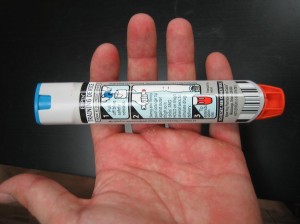Food allergy is an immune system reaction that occurs after eating a certain kind of food. Allergies can have symptoms such as problems with digestion, hives or a swollen airway. A food allergy can also cause a severe symptom or a life-threatening reaction known as anaphylaxis.
Common foods that causes allergies
In adults, there are certain foods that causes allergies
- Peanuts
- Tree nuts like the walnuts
- Shellfish like shrimp, crayfish, lobster, and crabs
- Milk and eggs
The food allergy pattern among children is different than the adults. Peanuts, milk and eggs are the most common allergens among children. Children can outgrow their allergies for milk, eggs, or soy. The foods that adult and children react to are foods they eat often.
Symptoms of a food allergy
- Difficulty in breathing or wheezing
- Tightness in the throat or a feeling that the airways are closing
- Hoarseness
- The lips, tongue, or throat are swollen
- Nausea, abdominal pain or vomiting
- Fast heartbeat or pulse
- Anxiety or dizziness
- Loss of consciousness
- Anaphylaxis
Treatment for food allergies

The main treatment for food allergies is avoidance of the food that the individual is allergic to. People can avoid foods that they are sensitive to by reading food labels carefully and avoiding restaurant prepared foods that might have ingredients they are allergic to.
Individuals who experience an anaphylactic reaction to a particular food should use a medical alert bracelet or necklace. These individuals should carry a syringe of adrenalin (epinephrine) prescribed by a doctor and they are prepared to self-administer a dose if they feel they are having an allergy to a certain food. Anaphylactic reactions can also be deadly even with minor symptoms such as the tingling sensation in the mouth and throat or gastrointestinal uneasiness. This reaction would require immediate emergency care.
There are several medications that a patient can take to relieve the symptoms of allergy. It includes antihistamines to relieve any of the gastrointestinal symptoms, hives, or sneezing and runny nose. Bronchodilators are also given to relieve bronchospasm or the symptoms of asthma.
Symptoms mistaken for a food allergy
- Absence of an enzyme needed to fully digest food – there is not enough amounts of enzyme needed to digest food thus causing bloating, cramping, diarrhea and excess gas.
- Food poisoning – it sometimes mimic an allergic reaction such as bacteria present in spoiled tuna that can produce a toxin that causes harmful reactions in the body.
- Sensitivity to food additives – digestive reactions to food additives can occur. A preservative known as sulfites is used to preserve dried fruits, canned goods and wine can cause asthma attacks in sensitive individuals. Other commonly used food additives such as monosodium glutamate (MSG), food colouring and artificial sweeteners can also cause a severe reaction.
- Histamine toxicity – varieties of fishes such as mackerel or tuna that were not refrigerated properly contains bacteria, thus causing symptoms similar to those of food allergies
- Celiac disease – referred to as gluten allergy. Celiac disease causes damage to the surface of the small intestines thus leading to the inability to absorb nutrients.
